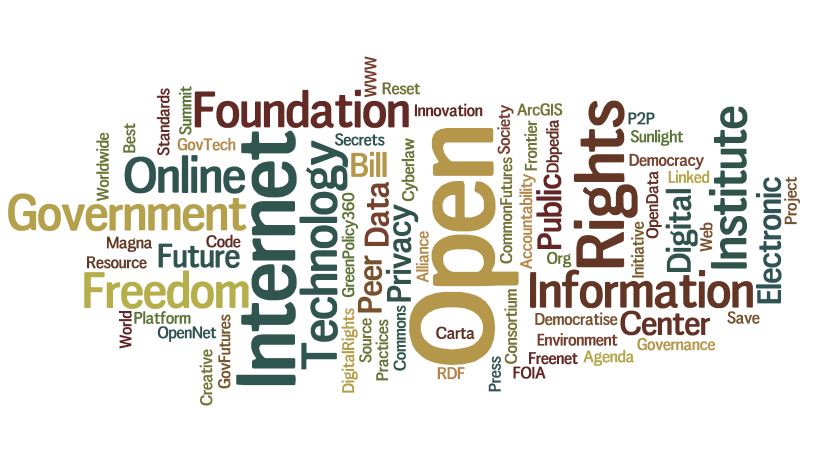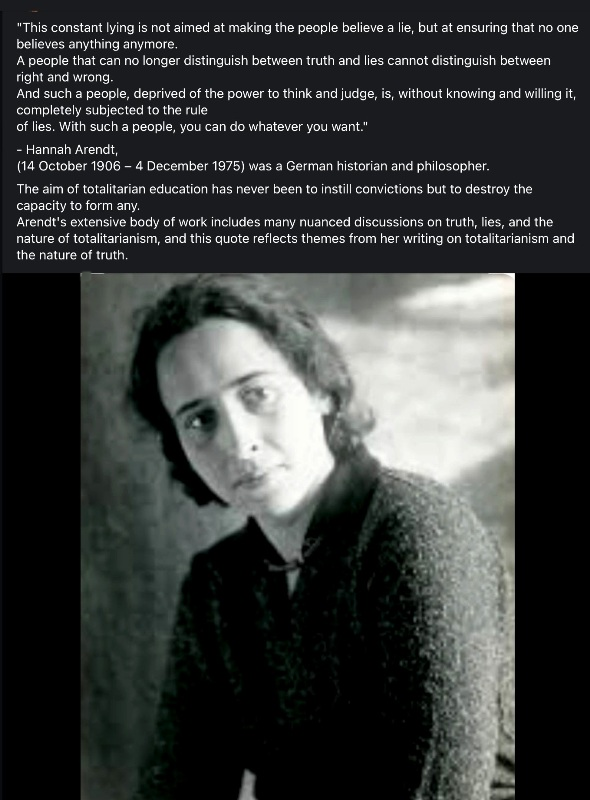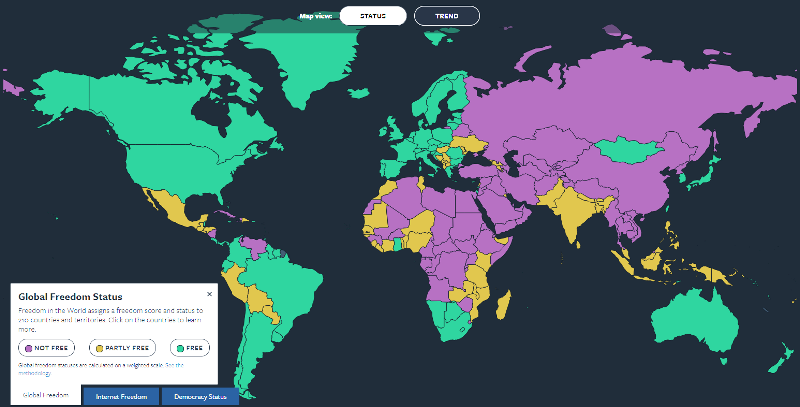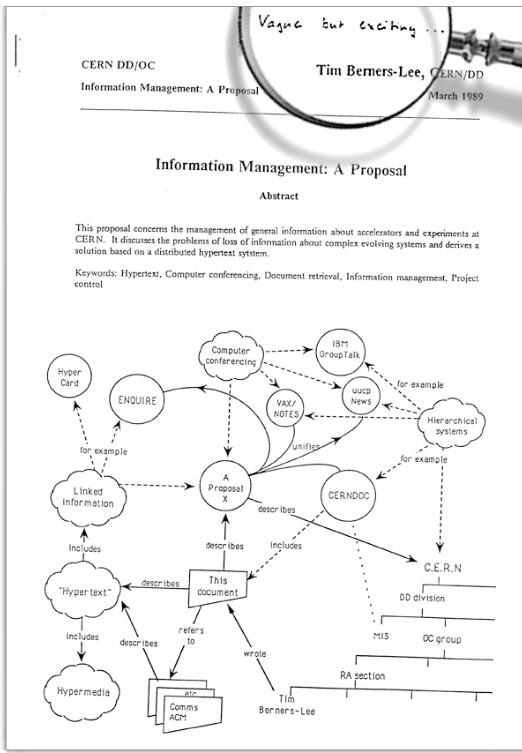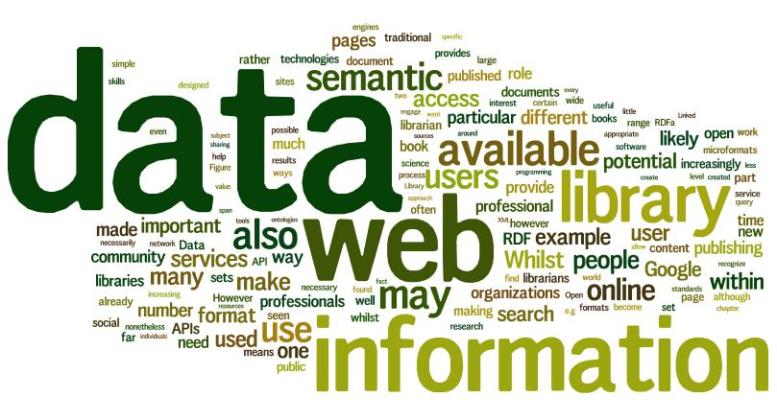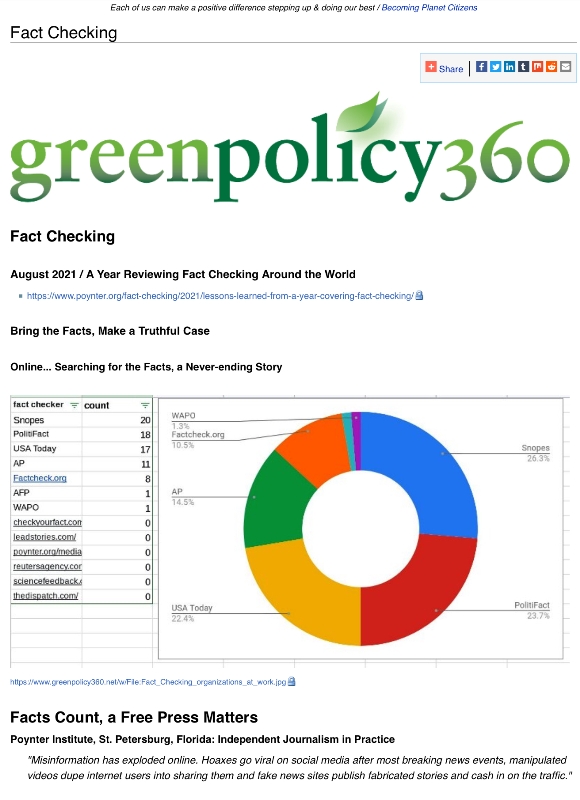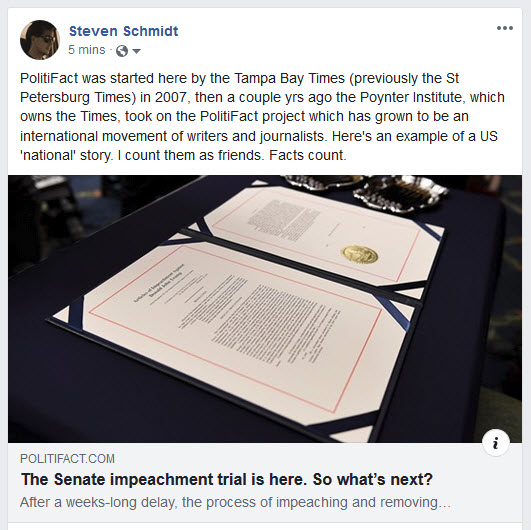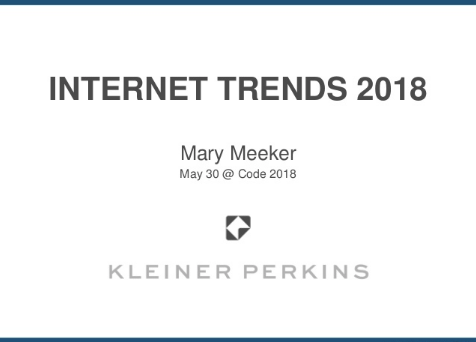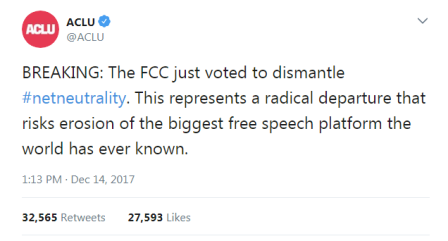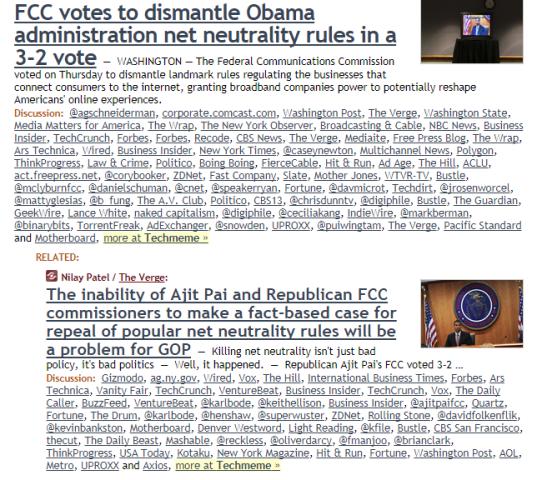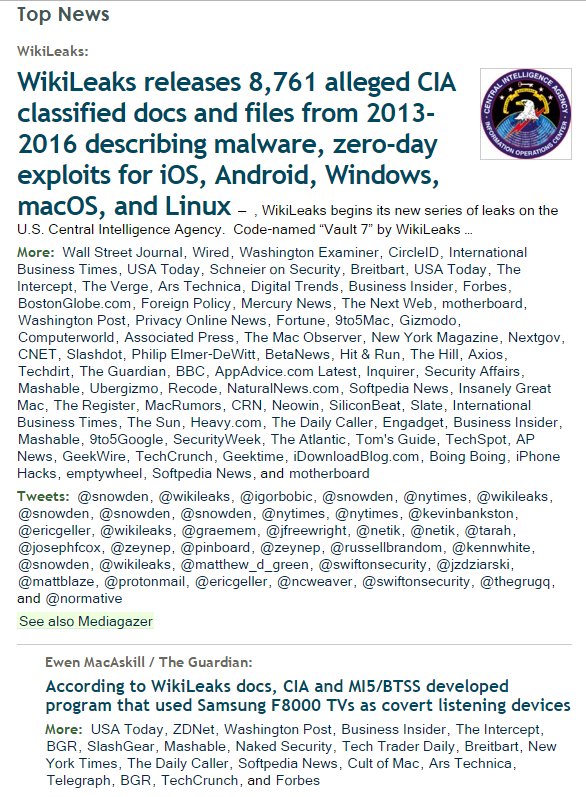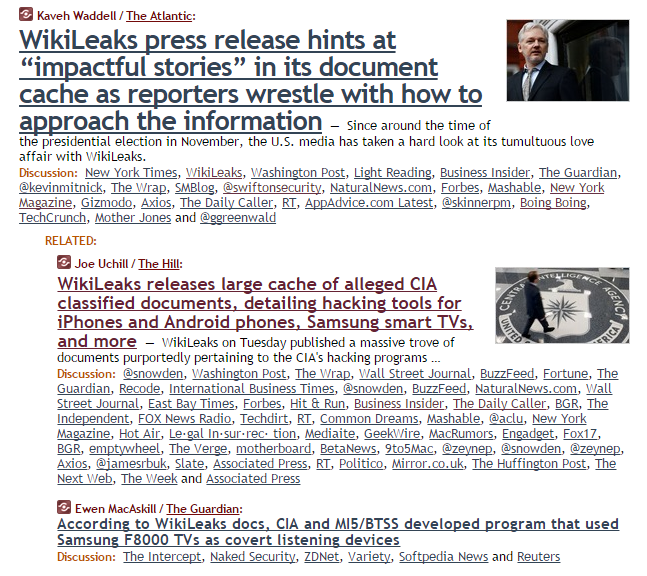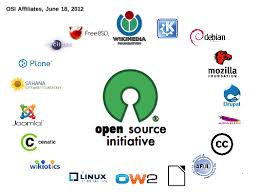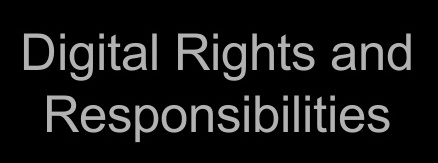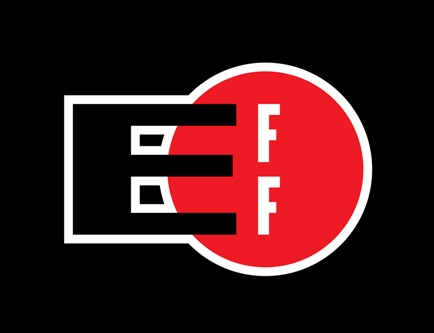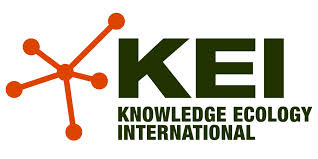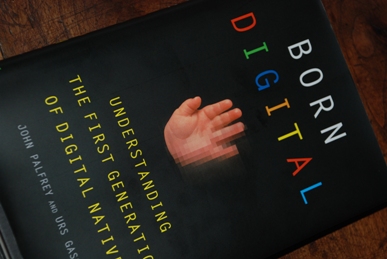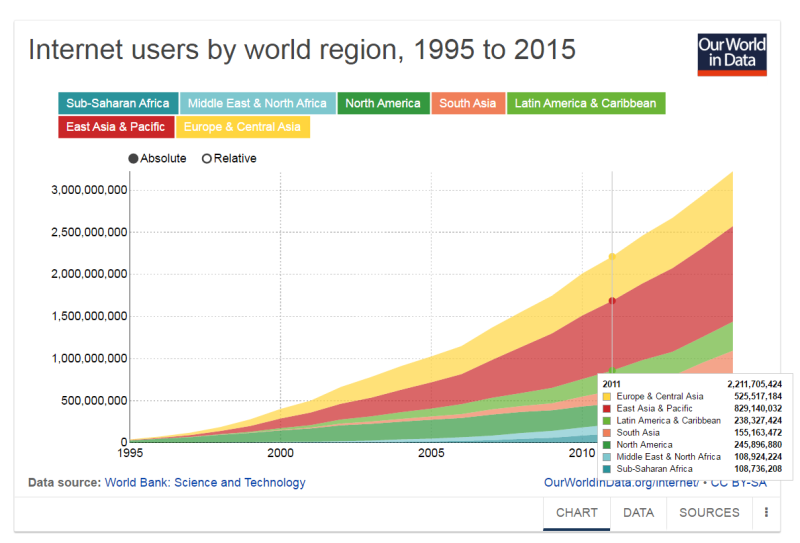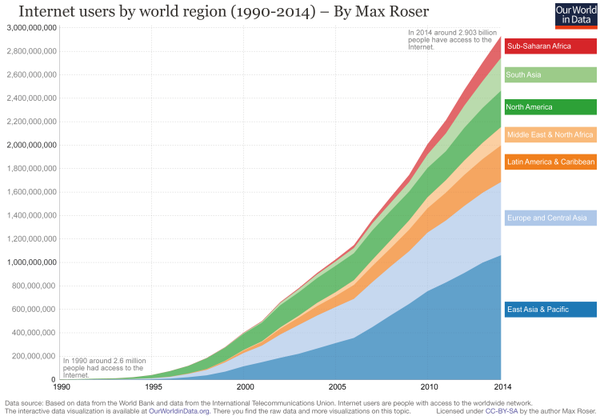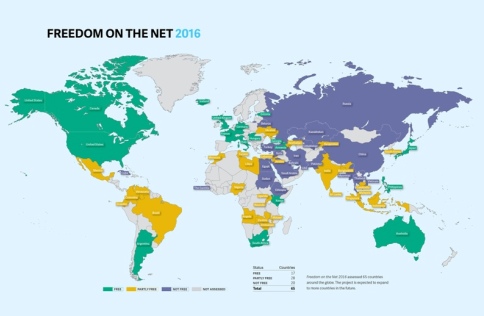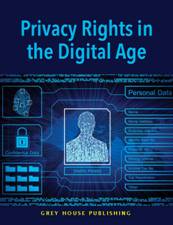Digital Rights: Difference between revisions
Siterunner (talk | contribs) No edit summary |
Siterunner (talk | contribs) No edit summary |
||
| (One intermediate revision by the same user not shown) | |||
| Line 1,508: | Line 1,508: | ||
: (FB) https://Facebook.com/CreativeCommons | : (FB) https://Facebook.com/CreativeCommons | ||
: (TW) https://Twitter.com/creativecommons | : (TW) https://Twitter.com/creativecommons | ||
* Cybersecurity for Democracy - https://cybersecurityfordemocracy.org/ | |||
: Tools to increase researchers ability to study online platforms | |||
* Data.gov, US Government open data - http://www.data.gov/ | * Data.gov, US Government open data - http://www.data.gov/ | ||
| Line 1,792: | Line 1,795: | ||
* VYPR VPN - http://www.goldenfrog.com/vyprvpn | * VYPR VPN - http://www.goldenfrog.com/vyprvpn | ||
* Verified Voting - https://verifiedvoting.org/ | |||
* Web We Want (World Wide Web Foundation) - http://webfoundation.org/2013/12/announcing-the-web-we-want/ - https://webwewant.org/ | * Web We Want (World Wide Web Foundation) - http://webfoundation.org/2013/12/announcing-the-web-we-want/ - https://webwewant.org/ | ||
Latest revision as of 14:00, 10 January 2025
Digital, Internet & World Wide Web
- Looking Back, Looking Forward
Topic for the Decade -- AGI
- Artificial General Intelligence
2024
Topic of the Year -- Disinformation - Online - Dangerous
An information war is being waged in the 2024 US presidential campaign.
In a previous era came the rise of despots and extremism that brought on World War II. There were those who pointed at the threat horizon and then, in their later years, warned of the conditions of extremist tools and techniques -- and how information can be manipulated.
One of the great political writers and theorists was Hannah Arendt and her warnings continue to resonate over the years...
In Germany, Hannah Arendt
Today, Barbara McQuade carries this defense of rights and democracy forward, delivering a fact- and verse-filled tour of a struggle for power in the context of truth, information technology and law. It is no exaggeration to say the future of the US as nation is at risk, that democratic institutions are being challenged as false claims and lies, dis- and mis-information, conspiracy theories and rampant 'dirty politics' are becoming everyday realities.
What's up, what's down? Big lies abound.
Attack from Within: How Disinformation Is Sabotaging America
🌎
Planet Citizens, Digital Rights @GreenPolicy360
Digital Citizen | Networking | Online Privacy | Strategic Digital / Online Policy
🌎
European approach to artificial intelligence
The EU’s approach to artificial intelligence centers on excellence and trust, aiming to boost research and industrial capacity while ensuring safety and fundamental rights
🌎
2023
Annual Report on Rights on the Open Internet / World Wide Web
By Freedom House
Introduction
At home and on the international stage, authoritarians are on a campaign to divide the open internet into a patchwork of repressive enclaves. More governments than ever are exerting control over what people can access and share online by blocking foreign websites, hoarding personal data, and centralizing their countries’ technical infrastructure. As a result of these trends, global internet freedom has declined for a 12th consecutive year....
Key Findings
Global internet freedom declined for the 12th consecutive year. The sharpest downgrades were documented in Russia, Myanmar, Sudan, and Libya. Following the Russian military’s illegal and unprovoked invasion of Ukraine, the Kremlin dramatically intensified its ongoing efforts to suppress domestic dissent and accelerated the closure or exile of the country’s remaining independent media outlets. In at least 53 countries, users faced legal repercussions for expressing themselves online, often leading to draconian prison terms.
Governments are breaking apart the global internet to create more controllable online spaces. A record number of national governments blocked websites with nonviolent political, social, or religious content, undermining the rights to free expression and access to information. A majority of these blocks targeted sources located outside of the country. New national laws posed an additional threat to the free flow of information by centralizing technical infrastructure and applying flawed regulations to social media platforms and user data.
China was the world’s worst environment for internet freedom for the eighth consecutive year. Censorship intensified during the 2022 Beijing Olympics and after tennis star Peng Shuai accused a high-ranking Chinese Communist Party (CCP) official of sexual assault. The government continued to tighten its control over the country’s booming technology sector, including through new rules that require platforms to use their algorithmic systems to promote CCP ideology.
A record 26 countries experienced internet freedom improvements. Despite the overall global decline, civil society organizations in many countries have driven collaborative efforts to improve legislation, develop media resilience, and ensure accountability among technology companies. Successful collective actions against internet shutdowns offered a model for further progress on other problems like commercial spyware.
Internet freedom in the United States improved marginally for the first time in six years. There were fewer reported cases of targeted surveillance and online harassment during protests compared with the previous year, and the country now ranks ninth globally, tied with Australia and France. The United States still lacks a comprehensive federal privacy law, and policymakers made little progress on the passage of other legislation related to internet freedom. Ahead of the November 2022 midterm elections, the online environment was riddled with political disinformation, conspiracy theories, and online harassment aimed at election workers and officials.
Human rights hang in the balance amid a competition to control the web. Authoritarian states are vying to propagate their model of digital control around the world. In response, a coalition of democratic governments has increased the promotion of online human rights at multilateral forums, outlining a positive vision for the internet. However, their progress remains hampered by problematic internet freedom practices in their own countries.
···································································································································································
Threats to user data and the amplification of misinformation and disinformation
U.S. Congress continues its hearings and examine legislative/regulatory actions to 'moderate' online social media platforms
Lawmakers expressed national security concerns about the ways in which social media platforms moderate extremist content, how their algorithms and business models may promote the spread of harmful posts and videos, and about their relationships with foreign governments during a Senate Homeland Security and Governmental Affairs Committee hearing on September 13/14, 2022
Former executives from Twitter and Facebook — now known as Meta — who said social media platforms are incentivized to share provocative content...
Scroll through how the media sees the state of social media...
More:
“Disinformation Nation: Social Media's Role in Promoting Extremism and Misinformation"
····································································
Disinformation - Online - Dangerous
·······································
War by Other Means
Control over the Information and Communications Space Accompanies Next-Gen Politics
Described as Authoritarian InfoSec vs Democratic Open Debate, the Internet Becomes a Pervasive Political Force
GreenPolicy360: One of the core endeavors of Green politics advocated in founding Green platform documents is "an expansive rights agenda." These include human rights, civil rights, free speech rights, privacy rights, worker rights, women's rights... The Green platform does not advocate authoritarianism, except in the case of some ideological cadres and fringes who, in the U.S. hew to an authoritarian line and sectarian stridency. As the Green political formations are a world-wide phenomena, Green parties are now in over 100 nations, a deeper, broad-based Green "values-based politics" is by magnitudes more diverse, multi-faceted, and rights-based in its vision than any faction that has attempted to push an authoritarian line and block Green political progress. The information space and digital rights, facts, science and a battle for a rights agenda is the goal of vital, healthy Green politics. This is a struggle against disinformation, misinformation, privacy intrusions, personal tracking and monitoring by a 'creeping authoritarianism'. Today's info environment is an active security threat and digital rights are a 24/7/365 theater of conflict in which we all, as digital citizens, are engaged...
Li Yuan’s New New World column focuses on the intersection of technology, business and politics in China and across Asia. In the latest edition, she explains how Russia is heading toward harsher internet censorship, akin to China’s Great Firewall, to better control its people.
(Excerpt from the NY Times)
"When Russia blocked Facebook and limited Twitter this month, many Chinese internet users were surprised. Wait a moment, they said: The Russians could use Facebook and Twitter? Both social media platforms have been banned in China since 2009."
"By blocking online platforms, shutting down the last vestige of Russia’s independent media and making it a crime to refer to the fighting in Ukraine as a war, the Kremlin has made it nearly impossible for the Russian people to get independent or international news after its invasion. Most Russians are taking in an alternative reality."
That’s exactly what China has been doing to its 1.4 billion people for years. Nearly all major Western websites are blocked in the country. A generation of Chinese have grown up in a very different information environment from the rest of the world. Mostly, they are left to believe in what Beijing tells them.
“When people ask me how info environment within the Great Firewall is like,” Yaqiu Wang, a researcher at Human Rights Watch in New York, wrote on Twitter about China’s censored internet, “I say, ‘imagine the whole country is one giant QAnon.’”
Facial recognition cameras are ubiquitous now in China. These systems are being markeyed and sold by China globally.
Database software/firmware/hardware with extensive monitoring systems portend a perilous threat to human rights throughout an Internet-connected world...
e.g.,
···································································································
Three decades+ of the WWW. It's World Wide Web time
- Let's take a trip thru Web1, Web2, and now Web3...
- Web3 is a somewhat ambiguous term, which makes it difficult to rigorously evaluate what the ambitions for web3 should be, but the general thesis seems to be that web1 was decentralized, web2 centralized everything into platforms, and that web3 will decentralize everything again. web3 should give us the richness of web2, but decentralized...
Click thru a selection of our GreenPolicy360 Net 'n Web pages...
Fact Checking and Embedded Links
Privacy on the Net-Online Rights
Strategic Policy-Internet Online Rights
Wikipedia, Wikimedia, MediaWiki, and wiki
○
○
2021
Developing the 21st century data science workforce | Beta site for NSF - National Science Foundation - (U.S.)
December 2021
- Your Moment on Earth, Planet Citizen 🌎
It's All Related, It's All Connected
November 2021
Code for Democracy
Our search, visualization, and alerting tools make it easy to investigate relationships between campaign contributions, political narratives, and legislative outcomes
Code for Democracy Debuts New Tool to Track Money in Politics
The web tool aims to make it easier to investigate campaign contributions, lobbying, nonprofit spending, and more, and to get alerts on new data
October 2021
April 2021
Anti-disinformation work seems to have boomed of late, but is a lot of it just well-educated people writing reports for each other on how bad the problem is?
In the last five years of a whole cottage industry (has been built) of research centers, academic studies, journalistic conferences and tech summits on disinformation.
In 2017, the CUNY School of Journalism (now called the Craig Newmark Graduate School of Journalism at CUNY) launched a $14 million News Integrity Initiative with primary funding from Facebook, with the goal of “helping people make informed judgments about the news they read and share online.” That same year, the Omidyar Network announced $100 million in funding for journalism outlets and to organizations combating hate speech and the spread of false information. The Annenberg Innovation Lab launched a “Truthiness Collaborative” to “advance research and engagement around the misinformation, disinformation, propaganda and other challenges to discourse fueled by our evolving media and technology ecosystem.
Now in just the last year, there’s a plethora of new organizations with names like The Forum on Information and Democracy, Digital Citizens Alliance, the Coalition for a Safer Web, and the Global Project Against Hate and Extremism.
○
Science Counts
Check the Facts, Be Careful
Avoid Spreading Disinfo & Misinfo
·········································
····························································
Entering the Third Decade of the 21st Century
December 2020
Digital rights are the new human rights. Protect your rights. --- GreenPolicy360
Planet citizens, planet scientists, be vigilant, aware, smart & skeptical as you surf the web. Practice 'discernment' online.
November/October 2020
'Hacking Your Mind'
PBS four-part series: Watch as data mining marketers and social media companies micro-target you
··········································
European Union High Court Rules in Favor of Net Neutrality
Major Legal Decision Sets Direction of Internet
···········································································································
C-Span goes inside the troubling issues, questions, and challenges of database security
Geo-politics ... cyber conflicts ... cyber warfare ... misinformation ... disinformation ... digital rights ... digital privacy ...industrial policy
Voting vulnerabilities... hacking ... auditing ... memory cards ... who manufactures the electronic voting equipment (four companies) ... who owns the four companies?
Data and database marketing ... outsourcing ... supply chain vulnerabilities... cell phones ... apps ...
Trend analytics ... demographics ... psychometrics ... consolidation of data and platforms
Critically, who has access to our data? How is our personal data used?
More from Jeff Moss (Black Hat & DEF CON)
··························
September 2020
Beyond the 20th Century Atomic Age and the Space Age, the 21st Century global, interconnected Information (and Misinformation) Age
Democratized Information Is Transforming Society
Via Scientific American / September 2020 (175th anniversary issue)
August/July
Issues in Today's Connected World... 'digital divide', 'net neutrality', 'mass surveillance', and that's just the beginning
- Digital rights are 'the issue of issues' in a 21st century global network connecting e-citizens of the world
Digital Rights & Online Privacy
- Online Rights, Civil Liberties at Risk
Privacy on the Net? Protecting Individual Rights to Privacy, a Great Challenge of Our Times
June/May 2020
(US News)
On the Wyden-Daines Amendment to the PATRIOT Act
Pressure Mounts in Congress to Limit 'Spying'
- Questioning the US Patriot Act with its broad surveillance and investigative powers
Re: Section 215 of the PATRIOT Act
"A Deeply Concerning threat to civil liberties, privacy, and legal rights"
- The future of the net, privacy rights, and open democracy at risk
- https://www.fightforthefuture.org/news/2020-05-22-tell-nancy-pelosi-to-save-internet-privacy-before/
SaveInternetPrivacy.org
May 18, 2020
Speaker Pelosi, Minority Leader McCarthy, Chairman McGovern, Ranking Member Cole, Chairman Nadler, and Ranking Member Jordan:
On May 13, a bipartisan majority of 59 Senators — 24 Republicans and 35 Democrats — voted in support of the Wyden-Daines amendment to H.R. 6172, the USA FREEDOM Reauthorization Act of 2020. Though two more Democratic Senators supported the measure, one being a cosponsor, they were unable to be present for the vote.
Thankfully, support for the underlying policy is now abundantly clear, both within Congress and among the public: the FBI should not be allowed to use the PATRIOT Act to surveil Americans’ online activity without a warrant.
Internet search and browsing history is extremely revealing in nature and the Fourth Amendment requires a warrant to obtain this information. As the Supreme Court in Riley noted, “An Internet search and browsing history, for example, can be found on an Internet-enabled phone and could reveal an individual's private interests or concerns — perhaps a search for certain symptoms of disease, coupled with frequent visits to WebMD.”[1] Section 215 was never intended to allow the government to collect such information, and the Wyden-Daines amendment would make this prohibition crystal clear. Given the government’s failure to disclose whether it believes it can collect this information under Section 215 already, the bright-line rule reflected in the Wyden-Daines amendment is sorely needed.
Accordingly, we urge you to only move H.R. 6172 with the inclusion of the Wyden-Daines amendment, or to provide an opportunity to vote on the amendment on the floor...
This reform is precisely designed to stave off the kind of scandals that led to a dramatic loss of trust in United States intelligence agencies over the past two decades. Indeed, this would help address serious concerns among the public that civil liberties are at a heightened risk during this time of crisis. This is an acute concern for the many groups that the FBI has wrongfully targeted in the past, including activists, communities of color, and the press. With ample support for this measure secured in the Senate, the decision to seize this moment in defense of Americans’ civil liberties is exclusively in your hands.
Sincerely,
Access Now, ACCESS of WNY, American Booksellers for Free Expression, American Civil Liberties Union, American Family Voices, American Society of Journalists and Authors (ASJA), American-Arab Anti-Discrimination Committee, Arab American Civic Council, Arab American Institute, Center for Biological Diversity, Center for Democracy & Technology, Common Defense, Constitutional Alliance, Council on American-Islamic Relations, Courage California, Defending Rights & Dissent, Demand Progress, DuckDuckGo, Due Process Institute, Equality Labs, Fight for the Future, Free Press Action, Free Speech Coalition, Freedom of the Press Foundation, FreedomWorks, Government Accountability Project, Government Information Watch, Human Rights Watch, Just Foreign Policy, Kurt Vonnegut Museum and Library, MediaJustice, Movement Alliance Project, MPower Change, MSA West, Muslim Justice League, National Association for the Advancement of Colored People (NAACP), National Association of Criminal Defense Lawyers, National Coalition Against Censorship, New America's Open Technology Institute, PEN America, People For the American Way, Poligon Education Fund, Presente Action, Progress America, Restore The Fourth, RootsAction.org, Secure Justice, Society of Professional Journalists, TechFreedom, Union of Concerned Scientists
··································································
Manipulating the Facts: Mis-information and New Journalism Attempting to Identify and Correct Mis- and Dis-information
SJS/GreenPolicy360 Siterunner: PolitiFact has become a global project, nation by nation growing to address online rights and the many issues of reporting facts, confronting online disinformation and multiple issues on social media, as well a protecting digital rights and democratic and human rights.
The future development of the internet, globally, within and among nations, is a project with profound consequences.
PolitiFact, a project of the Poynter Institute, St. Petersburg, Florida, has created and continues to help power up a global fact-checking movement, monitoring news on the internet and social media, politics and business.
- ············································································································
The Databases Know Who You Are, They're Following You
Going Shopping Online? A Story of an Typical Shopper:
I Visited 47 Sites. Hundreds of Trackers Followed Me
····························································
Voter Files, Voting, Voting Machines, Vote Tallying & Reporting: Hacking, Rigging, Manipulations -- and Fixes
Follow Jennifer Cohn on digital voting machines and voting in the US -- politics and vulnerabilities
·····························
The Great Hack
Netflix Original Documentary
·····························
July/June 2019
(Video) Amazon employee directly confronts Jeff Bezos over his inaction on climate change
Facebook Knows You (and your digital history is for sale)
Privacy? What privacy? You're ours...
Database marketing and targeting is all about you
May/April 2019
Manipulating the Web ... What the Future Promises, More Manipulation
• https://www.greenpolicy360.net/w/The_Problem_Beyond_Fake_News
Our platformed and algorithmically optimized world is vulnerable — to propaganda, to misinformation, to dark targeted advertising from foreign governments — so much so that it threatens to undermine a cornerstone of human discourse: the credibility of fact...
···················································································
Open Source, 25 Years Later: An Interview with Linus Torvalds
I used to think that some radical new and exciting OS would come around and supplant Linux some day (hey, back in 1994 I probably still thought that maybe Hurd would do it!), but it's not just that we've been doing this for a long time and are still doing very well, I've also come to realize that making a new operating system is just way harder than I ever thought. It really takes a lot of effort by a lot of people, and the strength of Linux—and open source in general, of course—is very much that you can build on top of the effort of all those other people.
So unless there is some absolutely enormous shift in the computing landscape, I think Linux will be doing quite well another quarter century from now. Not because of any particular detail of the code itself, but simply fundamentally, because of the development model and the problem space....
The traditional PC is obviously no longer quite the dominant thing it used to be. Even when you have one (and even when it's still running Windows or OS X), lots of people mainly interact with it through a web browser and a couple random apps. Of course, then there are the "workstation" users, which is kind of the desktop I was personally always envisioning. And while still important, it doesn't seem to drive the market the way the PC did back when. Powerful desktop machines seem to be mostly about development or gaming, or media editing. The "casual" desktop seems to have become more of a browser thing, and quite often it's just a tablet or a phone.
March 2019
The Internet Archive and Wayback Machine, More than History, Necessity
• http://www.bbc.com/future/story/20190401-why-theres-so-little-left-of-the-early-internet
February 2019
Via the LA Times / Digital Rights, Digital Knowledge: Elsevier and the University of California
Open It Up, Academic Publishing and Open Access
January 2019
Citizen Lab - https://citizenlab.ca/
• https://citizenlab.ca/category/lab-news/
December 2018
Tech Workers Paid in Company Stock: They Use It to Agitate for Change
Former and current Amazon employees who received stock grants have used them to submit a shareholder proposal asking the company to reduce its dependence on fossil fuels...'
November / October 2018
Via Fast Company
Tim Berners-Lee tells us his radical new plan to upend the World Wide Web
This week, Berners-Lee will launch Inrupt, a startup that he has been building, in stealth mode, for the past nine months. Backed by Glasswing Ventures, its mission is to turbocharge a broader movement afoot, among developers around the world, to decentralize the web and take back power from the forces that have profited from centralizing it. In other words, it’s game on for Facebook, Google, Amazon. For years now, Berners-Lee and other internet activists have been dreaming of a digital utopia where individuals control their own data and the internet remains free and open. But for Berners-Lee, the time for dreaming is over.
“We have to do it now,” he says, displaying an intensity and urgency that is uncharacteristic for this soft-spoken academic. “It’s a historical moment.” Ever since revelations emerged that Facebook had allowed people’s data to be misused by political operatives, Berners-Lee has felt an imperative to get this digital idyll into the real world. In a post published this weekend, Berners-Lee explains that he is taking a sabbatical from MIT to work full time on Inrupt. The company will be the first major commercial venture built off of Solid, a decentralized web platform he and others at MIT have spent years building.
A Netscape for today’s internet
If all goes as planned, Inrupt will be to Solid what Netscape once was for many first-time users of the web: an easy way in. And like with Netscape, Berners-Lee hopes Inrupt will be just the first of many companies to emerge from Solid...
August 2018
Disinformation, Misinformation and #DigitalRights: Limits of free speech
by Peter Van Buren
July 2018
"I was devastated."
Tim Berners-Lee has seen his creation debased by everything from fake news to mass surveillance.
For people who want to make sure the Web serves humanity, we have to concern ourselves with what people are building on top of it”... Berners-Lee was speaking about the future of the Internet.
June 2018
Network Earth, Planet Citizens Being Connected by a Global Internet
Read the latest (2018) annual statistics report (294-Page PDF Document).
GreenPolicy360's ecoOperatingSystem #eOS continues to evolve beyond-borders as an inter-relational network of networks...
Growth of the Internet and world-wide web, light and dark, is connecting and powering up #PlanetCitizens globally...
May 2018
General Data Protection Regulation / GDPR
Via The Guardian / New York Times / Forbes
Via TechCrunch / May 19
‘My Data Request’: How You Request Data About You
- https://mydatarequest.com/ - Request your personal data from 100+ companies
A practical guide to the European Union’s GDPR for American businesses
Via Recode / May 16
European Union digital privacy regulation begins on May 25, 2018.
American businesses operating or digitally serving customers in the EU must comply.
······························································
General Data Protection Regulation
http://eur-lex.europa.eu/legal-content/EN/TXT/?uri=uriserv:OJ.L_.2016.119.01.0001.01.ENG
Regulation (EU) 2016/679 of the European Parliament and of the Council of 27 April 2016 on the protection of natural persons with regard to the processing of personal data and on the free movement of such data, and repealing Directive 95/46/EC
(Text with EEA relevance)
···················
April 2018
GreenPolicy360, hosted on the open MediaWiki platform
How do you view Wikipedia and Wikimedia Foundation’s relationships with the major platforms — Google, Facebook, and so on. How would you characterize it?
For the most part, we grew up independently from most of the major platforms that dominate today. If you look around the biggest ones, we predate, I think, all of them but Google. At least of the ones that trade in knowledge and information. We were created for a very different purpose at a different time. The web that we came into actually had a number of larger collaborative, non-commercialized early projects, some of which still exist, and some of which don’t, that were more community-driven. And we sort of are a legacy of the original spirit of the web, and that’s very much what the Wikimedia Foundation was created to do — to ensure that Wikipedia was preserved as a nonprofit entity, with respect for community governance, and in the public interest and in the public spirit...
Read the full interview. Important reflections and go-forward observations about digital rights and the global future of the Internet.
More on the differences between Wikipedia, Wikimedia, MediaWiki, and wiki
··································································································
Mark Zuckerberg, Facebook CEO-Founder Testifies before US Congress - April 2018
An Internet Snapshot - March 2018
"Surveillance Capitalism", Op-Ed via openDemocracy
Time for a VPN? Virtual Private Networks and Data Privacy
The Problem Beyond Fake News, How to Create Internet Integrity
····························
December 2017
November
- Op-Ed I'm on the FCC. Stop us from killing net neutrality -- http://www.latimes.com/opinion/op-ed/la-oe-rosenworcel-fcc-net-neutrality-repeal-20171122-story.html
- The Backlash Is Building Over the Plan to Gut Net Neutrality -- https://www.nbcnews.com/tech/tech-news/backlash-building-over-plan-gut-net-neutrality-n823436
FCC Rollback of "Network Neutrality" Regulations
- An Open Letter to the FCC -- https://medium.com/@AGSchneiderman/an-open-letter-to-the-fcc-b867a763850a
- What Could Happen and How It Could Affect You / The New York Times -- https://www.nytimes.com/2017/11/21/technology/net-neutrality-repeal-questions.html
- Why the Courts Will Have to Save Net Neutrality -- https://www.nytimes.com/2017/11/22/opinion/courts-net-neutrality-fcc.html
- The FCC and Net Neutrality: Once Again, We Must Raise Our Voices -- https://shift.newco.co/the-fcc-and-net-neutrality-once-again-we-must-raise-our-voices-7c96fcb2f630 --
What to Expect -- https://www.engadget.com/2017/11/21/what-to-expect-fcc-net-neutrality-proposal/
Inside the FCC's plan to end net neutrality -- https://www.axios.com/net-neutrality-2511425288.html
Trump's FCC announces plans to kill net neutrality: The people want net neutrality, but FCC chairman, Ajit Pai, announced his plan to take it away from them. With this, you can expect to see your internet bills go up -- http://www.zdnet.com/article/trumps-fcc-announces-plans-to-kill-net-neutrality/
FCC plan would give Internet providers power to choose the sites customers see and use -- https://www.washingtonpost.com/news/the-switch/wp/2017/11/21/the-fcc-has-unveiled-its-plan-to-rollback-its-net-neutrality-rules/
○
Internet Threats Today and On the Horizon
- "Whether it is winter that is coming, or a new spring, it is entirely in our hands so long as we prepare."
- Permalinks for Internet Exploits News/Reports
- Read More:
○
- The Digital World, Free Software and Next Generation Internet
- ○ ○ ○ ○ ○ ○ ○ ○ ○ ○
Digital Rights in a Connected World
Digital Rights/OpenData OpenGov -- http://bit.ly/DigitalRightsLinks
Digital Rights Organizations @ GreenPolicy360
Digital Citizens - @ Wikipedia
- http://en.wikipedia.org/wiki/Digital_rights
- http://en.wikipedia.org/wiki/Netizen
- http://en.wikipedia.org/wiki/Access_to_knowledge_movement
- http://en.wikipedia.org/wiki/Open_access
- http://en.wikipedia.org/wiki/Budapest_Open_Access_Initiative
- http://en.wikipedia.org/wiki/Bethesda_Statement_on_Open_Access_Publishing
Factoid: "The number of devices online reached 12.5 billion in 2010
& will grow to 25 billion in 2015 and 50 billion by 2020." -- MIT
http://share.cisco.com/internet-of-things.html -- Cisco
http://en.wikipedia.org/wiki/Electronic_Frontier_Foundation
http://en.wikipedia.org/wiki/Knowledge_Ecology_International
○
Internet Access Worldwide
Online access is a fundamental right
UN Report declares Internet access a human right
Global Internet User Survey - 2012_Internet Society Internet Society
Report on Internet Freedom around the World_2014
- Freedom on the Net_2014
- Tightening the Net: Governments Expand Online Controls-Summary
- Tightening the Net: Full Report PDF
○
Global Network Initiative - https://globalnetworkinitiative.org/
- Principles on Freedom of Expression and Privacy - https://globalnetworkinitiative.org//principles/index.php
- https://globalnetworkinitiative.org/sites/default/files/GNI_-_Principles_1_.pdf
○
Members of European Digital Rights have joined forces to defend civil rights in the information society. Currently, 33 privacy and civil rights organisations have a membership. They are based or have offices in 19 different countries in Europe.
○ ○ ○ ○ ○ ○ ○ ○
Facts Count
Poynter Institute in St Petersburg, Florida is independent journalism in practice
- Poynter continues to provides 'best practices' for journalists/news organizations/writers
- With the launch of its PoliFact project, fact-checking has become a key best practice in an era of attacks on media and the press
Global Fact-Checking Projects in Countries around the World -- PolitiFact
PolitiFact has helped shape political fact-checking across the world...
··············································································
International Internet Access / Privacy / Digital Rights
In 2015 the European Parliament (EP), members of the European Parliament (MEPs) and assistants from throughout the political spectrum – European Conservatives and Reformists Group (ECR), European United Left, Nordic Green Left (GUE/NGL) and the Greens, European Free Alliance (Greens/EFA) – participated in the individual, customised training sessions.
See the 'Training Menu' | https://www.bof.nl/home/english-bits-of-freedom/
··························································
Then There Are We Digital Natives
'I'm a Millennial, I was born Digital, I'm the Gen Y Generation
····················································································································
Civil Society and Digital Rights
Center for American Progress
Institute for Strategic Dialogue
Accountable Tech
Advancing Justice - AAJC
Alondra Nelson, Institute for Advanced Study
Anna Marchese, Columbia World Projects, Columbia University
Asian and Pacific Islander American Vote
Center for Countering Digital Hate
Center for Democracy and Technology
Color Of Change Common Cause
Cybersecurity for Democracy
DatastrategIA and Universidad de Navarra
David Silva, Kent State University
Digital Democracy Institute of the Americas (DDIA)
Digital Forensic Research Lab (Atlantic Council)
Dr. Emma L Briant, Monash University
Emerson T. Brooking, Digital Forensic Lab Atlantic Council
Free Press
Friends of the Earth Action
GLAAD
Human Rights Campaign
Human Rights Watch
InfoEpi Lab
Issue One
Jan Zilinsky, Technical University of Munich
Japanese American Citizens League (JACL)
Jeff Allen, co-founder of Integrity Institute
Jeff Hancock, Stanford University
Jennifer Stromer-Galley, Syracuse University
John Perrino, Stanford Internet Observatory
Kaicheng Yang, Northeastern University
Kapor Center
Kathleen Carley, Carnegie Mellon University
Media and Democracy Data Cooperative, Josephine Lukito
Media Matters for America
Michael Best, Georgia Institute of Technology
National Conference on Citizenship
National Hispanic Media Coalition
New America’s Open Technology Institute
Niti Mishra, Pompeu Fabra University (UPF)
NYU’s Center for Social Media & Politics
Public Citizen
Public Knowledge
Rebekah Tromble, George Washington University
Renee DiResta, Stanford Internet Observatory
Rose Jackson, Atlantic Council’s Democracy + Tech Initiative
Salla-Maaria Laaksonen, University of Helsinki
Sikh American Legal Defense and Education Fund (SALDEF)
Tech Justice Law Project
Tech Policy Press
The Tech Oversight Project
Union of Concerned Scientists
○ ○ ○ ○ ○ ○ ○ ○ ○ ○ ○ ○ ○
Security State and Big Data
Part 1 – "A hidden world, growing beyond control"
Part 2 – "National Security Inc."
Part 3 – "The secrets next door"
Top Secret America The Rise of the New American Security State” by Dana Priest and William M. Arkin
○ ○ ○ ○ ○ ○ ○ ○ ○ ○ ○ ○ ○ ○ ○
Acting to Limit State Power
Report (2013-14) Liberty and Security in a Changing World
Transmittal Letter from the Report Group to the US President
Dear Mr. President:
We are honored to present you with the Final Report of the Review Group on Intelligence and Communications Technologies. Consistent with your memorandum of August 27, 2013, our recommendations are designed to protect our national security and advance our foreign policy while also respecting our longstanding commitment to privacy and civil liberties, recognizing our need to maintain the public trust (including the trust of our friends and allies abroad), and reducing the risk of unauthorized disclosures. We have emphasized the need to develop principles designed to create strong foundations for the future. Although we have explored past and current practices, and while that exploration has informed our recommendations, this Report should not be taken as a general review of, or as an attempt to provide a detailed assessment of, those practices. Nor have we generally engaged budgetary questions (although some of our recommendations would have budgetary implications). We recognize that our forty-six recommendations, developed over a relatively short period of time, will require careful assessment by a wide range of relevant officials, with close reference to the likely consequences.
~
Protecting the Right to Privacy.
The right to privacy is essential to a free and self-governing society. The rise of modern technologies makes it all the more important that democratic nations respect people’s fundamental right to privacy, which is a defining part of individual security and personal liberty.
Protecting Democracy, Civil Liberties, and the Rule of Law.
Free debate within the United States is essential to the long-term vitality of American democracy and helps bolster democracy globally. Excessive surveillance and unjustified secrecy can threaten civil liberties, public trust, and the core processes of democratic self-government. All parts of the government, including those that protect our national security, must be subject to the rule of law.
Promoting Prosperity, Security, and Openness in a Networked World.
The United States must adopt and sustain policies that support technological innovation and collaboration both at home and abroad. Such policies are central to economic growth, which is promoted in turn by economic freedom and spurring entrepreneurship. For this reason, the United States must continue to establish and strengthen international norms of Internet freedom and security.
○ ○ ○ ○ ○ ○ ○ ○ ○ ○ ○ ○ ○ ○ ○ ○ ○ ○ ○ ○ ○
New Definitions of National Security
GreenPolicy360 GreenLinks | permalink
○ ○ ○ ○ ○ ○ ○ ○ ○ ○ ○ ○ ○ ○ ○ ○ ○ ○ ○ ○ ○
SOPA Plus 10, reflections and continued work
Reflections 10 Years after
The fight for a global internet, access to information, and better sharing that benefits public interests are far from over. Because there are still many threats and SOPA-like provisions in other bills. Because many of the feared outcomes of the bill proposed in 2012 – website shutdowns, censorship to free speech, and domain seizures – are happening today.
Overview of SOPA/PIPA
SOPA and PIPA aimed to tighten U.S. laws to curb copyright infringement and counterfeiting, particularly focusing on illegal copies of media – films, TV shows, music – hosted on foreign servers. The bills aimed to block sites and order financial services to shut off anyone associated with a site.
If passed, the U.S. Department of Justice and rights holders could use court orders to take down entire websites based upon a single piece of content, or linked content, on that site. Internet service providers (ISPs) would block users using Domain Name System (DNS) blocking.
While the bills intended to stop piracy, they were vaguely written with disastrous consequences.
For example:
DNS blocking sets a global precedent and disrupts internet architecture.
Cybersecurity, and the possibility of Americans opting to use foreign DNS services to reach sites, was concerning.
Ideologically, the bills undermine the foundational structure of the global internet, cultural communication, free speech, economic innovation, and how people create, find, discuss, and share information lawfully online.
Dubbed the Internet Blacklist Bill, Creative Commons (CC) joined other like-minded organizations in 2012 to raise awareness about the dangers and fight the bills. As Congress continued to debate before the Jan 24 vote on SOPA, organizer Fight for the Future, watchdog groups, content creators, activists, and millions of American citizens participated in a more aggressive communication strategy to get the attention of Congress – a symbolic internet blackout and messaging protest.
Stop Online Privacy Act (SOPA)
On January 18th, 2012, more than 115,000 websites went dark or altered their home pages to drive their users’ attention to Congress, galvanizing massive opposition to two dangerous pieces of legislation, the Stop Online Privacy Act (SOPA) and the Protect IP Act (PIPA).
An estimated ten to fifteen million people expressed their opposition directly: Congress’ phone lines, fax lines and in boxes were flooded. A million people signed a petition organized against the bills organized by the Electronic Frontier Foundation.
Another 4.5 million signed a petition on Google’s home page.
Sponsors of the two bills backed by Hollywood and other copyright-centric industries began visibly flipping their positions. Two days later, the bills were withdrawn from consideration. (Thanks to Micah Sifry, TheConnector.Substack for the SOPA-PIPA recollections)
Mapping the SOPA-PIPA Debate
July 2013
By Yochai Benkler, Hal Roberts, Robert Faris, Alicia Solow-Niederman, Bruce Etling
○ ○ ○ ○ ○ ○ ○ ○ ○ ○ ○ ○ ○ ○ ○ ○ ○ ○ ○ ○ ○
Digital Rights | Open Data - Open Gov
Open Forum/Twitter
- #OpenAccess - https://twitter.com/hashtag/openaccess?src=hash
- #OpenData - https://twitter.com/hashtag/OpenData?src=hash
- #DigitalRights - https://twitter.com/hashtag/DigitalRights?src=hash
- #InfoSec - https://twitter.com/hashtag/InfoSec?src=hash
- #Cybersecurity - https://twitter.com/hashtag/cybersecurity?src=hash
Surveillance Capitalism
Surveillance capitalism is an economic system centred around the commodification of personal data with the core purpose of profit-making. The concept of surveillance capitalism, as described by Shoshana Zuboff, arose as advertising companies, led by Google's AdWords, saw the possibilities of using personal data to target consumers more precisely.[1]
Increased data collection may have various advantages for individuals and society such as self-optimization (Quantified Self),[2]...
societal optimizations (such as by smart cities) and optimized services (including various web applications). However, collecting and processing data in the context of capitalism's core profit-making motive might present a danger to human liberty, autonomy and wellbeing. Capitalism has become focused on expanding the proportion of social life that is open to data collection and data processing. This may come with significant implications for vulnerability and control of society as well as for privacy.
Economic pressures of capitalism are driving the intensification of connection and monitoring online with spaces of social life becoming open to saturation by corporate actors, directed at the making of profit and/or the regulation of action. Therefore, personal data points increased in value after the possibilities of targeted advertising were known.[3]
Consequently, the increasing price of data has limited accessibility to the purchase of personal data points to the richest in society.
Read more: https://en.wikipedia.org/wiki/Surveillance_capitalism
Keywords:
Capitalism, surveillance, digital technologies, democracy, collective action, twenty-first-century society, social inequality, power, internet, surveillance capitalism
References: https://en.wikipedia.org/wiki/Surveillance_capitalism#References
See also:
Commercialization of the Internet - https://en.wikipedia.org/wiki/Commercialization_of_the_Internet
Criticism of capitalism - https://en.wikipedia.org/wiki/Criticism_of_capitalism
Data mining - https://en.wikipedia.org/wiki/Data_mining
Free and open-source software - https://en.wikipedia.org/wiki/Free_and_open-source_software
Mass surveillance industry - https://en.wikipedia.org/wiki/Mass_surveillance_industry
Surveillance § Corporate - https://en.wikipedia.org/wiki/Surveillance#Corporate
Targeted advertising - https://en.wikipedia.org/wiki/Targeted_advertising
Privacy concerns with social networking services - https://en.wikipedia.org/wiki/Privacy_concerns_with_social_networking_services
(GreenPolicy360 Siterunner: A brief note in the interest of full-disclosure. Your GreenPolicy Siterunner has a long background in New Media and Internet business engineering and development. In the early years of my career, I was deeply involved in film, then NY publishing, and Hollywood producing with first generation digital equipment, including with the launch of Panavision's Panacam digital cameras, productions and post-production editing. For many years I worked with Schmidt-Cannon International, which grew into Aspen Marketing, becoming the largest privately held marketing services company in the U.S. For a number of years I was president of Aspen's interactive managing database online programs that were creating what was described as state-of-the-art database marketing. Earlier I worked as an technology advisor to the state of New Mexico, a State Board of Education official overseeing policy and management of K-12 public schools. These experience in the decades of the Internet and World Wide Web, New Media, business and education, led to the perspectives being shared now with GreenPolicy360, its network of Internet-related data and Web-connected sites and links. Hopefully, the deep perspective is of help as together we move forward into uncharted waters...)
______________________________________________________
Online Networking @GreenPolicy360
- Access Now ('Digital Human Rights') - https://www.accessnow.org/
- Alliance for Affordable Internet - http://a4ai.org/
- ArcGIS Open Data Platform - https://opendata.arcgis.com/about
- ASPI Cyber Policy - http://cyberpolicy.aspi.org.au/
- Center for Data Innovation - http://www.datainnovation.org/ - http://www.datainnovation.org/2014/04/the-economic-impact-of-open-data/
- Center for Democracy and Technology - https://cdt.org/
- (FB) https://www.facebook.com/CenDemTech
- (TW) https://twitter.com/CenDemTech
- (Wiki) http://en.wikipedia.org/wiki/Center_for_Democracy_and_Technology
- Coalition for a Safer Web - https://coalitionsw.org/media/
- Code for America - http://codeforamerica.org/issues/openness/
- CommonFutures EU/Int'l - http://CommonFutures.eu/the-future-of-open-possibly-the-largest-open-network-in-the-world
- Creative Commons - http://CreativeCommons.org
- Cybersecurity for Democracy - https://cybersecurityfordemocracy.org/
- Tools to increase researchers ability to study online platforms
- Data.gov, US Government open data - http://www.data.gov/
- 124K+ data sets as of 2015 - http://www.data.gov/metrics
- EcoInforma http://www.data.gov/ecosystems/ecoinforma/
- Dbpedia - http://dbpedia.org/About
- Decent Security - http://www.decentsecurity.com/blog/
- Digital Bill of Rights - http://jameslosey.com/post/79356515492/an-overview-of-calls-for-rights-or-principles-for-the
- Digital Citizens Alliance - https://www.digitalcitizensalliance.org/
- E Pluribus Unum, Dispatches on Open Government and Technology - http://e-pluribusunum.org/
- Electronic Frontier Foundation - https://www.eff.org/
- (RSS) https://www.eff.org/rss
- (Wiki) http://en.wikipedia.org/wiki/Electronic_Frontier_Foundation
- (Parker Higgins-EFF) https://twitter.com/xor
- (recommended by EFF)
- Electronic Privacy Information Center (EPIC) - https://www.epic.org/
- Energy and Environment Legislation Tracking Database (US) - http://NCSL.org/issues-research/energyhome/energy-environment-legislation-tracking-database.aspx
- eQualit.ie - https://equalit.ie/equalit-ie-manifesto/
- Advancing the International Bill of Human Rights - http://www.ohchr.org/Documents/Publications/Compilation1.1en.pdf
- Fact-Checking Projects - http://www.poynter.org/2016/there-are-96-fact-checking-projects-in-37-countries-new-census-finds/396256/
- Beginning with PolitiFact, the original project at Poynter Institute in St. Petersburg, Florida - https://en.wikipedia.org/wiki/PolitiFact.com
- http://www.poynter.org/about-the-international-fact-checking-network/
- http://reporterslab.org/fact-checking/
- http://reporterslab.org/category/fact-checking/#article-1384
- http://reporterslab.org/global-fact-checking-up-50-percent/
- Fight for the Future - http://www.fightforthefuture.org/
- Free Software Foundation / GNU - http://www.fsf.org/ - https://www.gnu.org/home.en.html
- Freedom of Information Requests/Government Attic (US) - http://GovernmentAttic.org
- Freedom of the Press Foundation - https://freedom.press/ - https://freedom.press/about/board
- (TW) https://twitter.com/FreedomofPress
- (FreedomPress Organizations) https://freedom.press/organizations
- Freedom Online Coalition - http://www.freedomonline.ee/ - http://www.freedomonline.ee/about-us/Freedom-online-coalition
- Freenet - https://freenetproject.org/
- Fundar - http://fundar.org.mx/
- Future of the Internet (blog) - http://futureoftheinternet.org/blog/
- General Data Protection Regulation (GDPR) - https://en.wikipedia.org/wiki/General_Data_Protection_Regulation
- Github and Open Data update - https://github.com/project-open-data - http://m.theatlantic.com/technology/archive/2014/02/catch-my-diff-githubs-new-feature-means-big-things-for-open-data/283673/
- Global Network Initiative - https://globalnetworkinitiative.org/
- Principles on Freedom of Expression and Privacy - https://globalnetworkinitiative.org//principles/index.php
- https://globalnetworkinitiative.org/sites/default/files/GNI_-_Principles_1_.pdf
- Global Open Data Initiative - http://GlobalOpenDataInitiative.org
- Global Partners - http://www.global-partners.co.uk/
- Global Project Against Hate and Extremism - https://www.inach.net/global-project-against-hate-and-extremism/
- Global Voices - http://globalvoicesonline.org/-/topics/digital-activism/
- GNU / Free Software Foundation - https://www.gnu.org/home.en.html - http://www.fsf.org/
- GNU Project - https://en.wikipedia.org/wiki/GNU_Project
- Government Accountability Project - http://www.whistleblower.org/
- Government Lab - http://thegovlab.org/
- GovFuturesLab - Reimagining governance for an age of planetary challenges and human responsibility
- (FB) https://Facebook.com/govfutures
- App4Gov (TW) https://Twitter.com/App4Gov
- GovLoop (US) training/social media/open gov - https://www.govloop.com/
- GovTrack - https://www.Govtrack.us/
- Information Technology and Innovation Foundation - http://www.itif.org/
- Institute for the Future - http://iftf.org/govfutures
- Internet.org "Connecting the World" - https://info.internet.org/en/
- Internet Archive - Wayback Machine - https://archive.org/
- Internet Bill of Rights / Internet Rights and Principles Coalition - http://internetrightsandprinciples.org/site/
- Internet Freedom Festival (IFF)
- Internet Governance Project - http://www.internetgovernance.org/
- Internet Society - http://www.internetsociety.org/who-we-are/mission
- IT for Change (India) - http://www.itforchange.net/
- Linked Data - http://linkeddata.org/
- Mobile Commons - https://www.mobilecommons.com/about/
- Mozilla Foundation Webmaker Tools - https://webmaker.org/en-US/tools
- New Media Rights - http://www.newmediarights.org/
- NetBlocks - https://netblocks.org/
- (About) https://netblocks.org/about
- Online Magna Carta - http://www.theguardian.com/technology/2014/mar/12/online-magna-carta-berners-lee-web [1]
- Open Access Publishing - http://en.wikipedia.org/wiki/Open_access
- Open Congress (U.S.) - https://www.opencongress.org/
- Open Data Institute UK-Int'l - http://TheODI.org/about-us - http://TheGuardian.com/public-leaders-network/2013/oct/22/open-data-institute-summit-gavin-starks
- Open Data movement_Wikipedia - http://en.wikipedia.org/wiki/Open_Data
- Open Data Research Network - http://opendataresearch.org/
- http://opendataresearch.org/emergingimpacts
- http://opendataresearch.org/content/2014/646/towards-common-methods-assessing-open-data-workshop-report
- Open Data - World Bank - http://data.worldbank.org/
- OpenDemocracy - https://www.opendemocracy.net/about
- https://www.opendemocracy.net/digitaliberties
- https://www.opendemocracy.net/openglobalrights
- (TW) https://twitter.com/opendemocracy
- Open Government Initiative (US) - http://www.whitehouse.gov/open
- Open Government in Practice - https://openlibrary.org/books/OL24435672M/Open_Government
- Open Government Partnership - International - http://OpenGovPartnership.org
- Open Institute - http://openinstitute.com/
- Open Knowledge Foundation Lab - http://okfn.org/
- (Blog) PublicBodies.org - http://blog.okfn.org/2013/07/09/introducing-open-knowledge-foundation-labs/
- Open Rights Group - https://www.openrightsgroup.org/
- Open Science - http://opensciencefederation.com/
- Open Secrets/Center for Responsive Politics - http://www.opensecrets.org/
- Open Source @Wikipedia - https://en.wikipedia.org/wiki/Open_source
- Open Source Ecology - http://opensourceecology.org/ - http://opensourceecology.org/gvcs/
- Open Source Hardware (wiki) - http://en.wikipedia.org/wiki/Open_source_hardware
- Open Standards Principles (UK) - https://www.gov.uk/government/publications/open-standards-principles/open-standards-principles
- Open State Foundation - http://www.openstate.eu/
- Open Technology Institute/New America Foundation - http://newamerica.org/oti/
- OpenGov Foundation - http://OpenGovFoundation.org
- OpenGov Hub - https://twitter.com/OpenGovHub
- OpenMedia International - https://openmedia.org/
- OpenNet Initiative - http://cyber.law.harvard.edu/research/opennet
- Peer 2 Peer-P2P Foundation - http://p2pfoundation.net/
- Personal Democracy Forum/Media - https://personaldemocracy.com/
- Civic Hall - http://civichall.org/
- Piwik analytics - http://piwik.org/
- Privacy Rights in the Digital Age (Published 2016)
- Project on Government Oversight - http://www.pogo.org/
- PublicAgenda - http://PublicAgenda.org
- Public Resource Org ("Making Government Information More Accessible") - https://public.resource.org/
- RDF Standards - http://W3.org/RDF
- Reform Government Surveillance - https://www.reformgovernmentsurveillance.com/
- Research Data Sharing without Barriers - https://RD-Alliance.org
- Reset the Net - https://www.resetthenet.org/
- SafeGov - http://www.safegov.org/
- Save Internet Privacy - https://www.saveinternetprivacy.org
- Save the Internet (US) - http://www.savetheinternet.com/sti-home
- Schneier on Security - https://www.schneier.com/about.html
- Software Freedom Law Center - https://www.softwarefreedom.org/
- SpiderOak - https://spideroak.com/
- State Decoded - http://StateDecoded.com
- Sunlight Foundation - http://sunlightfoundation.com/
- (FB) https://www.facebook.com/sunlightfoundation
- (G+) https://plus.google.com/+sunlightfoundation/posts
- (TW) https://twitter.com/sunfoundation
- Measuring the Impact of Open Data
- Surveillance Studies Centre - http://www.sscqueens.org/ - http://www.surveillance-studies.net/
- The Constituent (US) - https://The-Constituent.com
- The Forum on Information and Democracy - https://informationdemocracy.org/
- The Markup - https://themarkup.org/about
- Thoughtworks - http://www.thoughtworks.com/
- UN/United Nations Promotion and protection of human rights and fundamental freedoms while countering terrorism - https://firstlook.org/theintercept/2014/10/15/un-investigator-report-condemns-mass-surveillance/
- US Gov-EPA Databases - http://Water.EPA.gov/aboutow/owow/data.cfm
- VYPR VPN - http://www.goldenfrog.com/vyprvpn
- Verified Voting - https://verifiedvoting.org/
- Web We Want (World Wide Web Foundation) - http://webfoundation.org/2013/12/announcing-the-web-we-want/ - https://webwewant.org/
- WebTAP / Web Transparency & Accountability Project (Princeton University) - https://webtap.princeton.edu/
- Wikipedia
- https://en.wikipedia.org/wiki/Wikipedia
- https://en.wikipedia.org/wiki/MediaWiki
- https://en.wikipedia.org/wiki/Wikimedia_Foundation
- Jimmy Wales / Founder - https://en.wikipedia.org/wiki/Jimmy_Wales
- Wikiversity - https://en.wikiversity.org/wiki/Wikiversity:Main_Page
- World Summit on the Information Society +10/ - http://en.wikipedia.org/wiki/World_Summit_on_the_Information_Society
- Worldwide Web Consortium - http://www.w3.org/
- WWW Origins-Foundation, established by World Wide Web founder Tim Berners-Lee, "devoted to all people having access to the Web" - WebFoundation.org
- March 2017 Open Letter from Berners-Lee on Threats to the Web
- 1) "We’ve lost control of our personal data"; 2) "It’s too easy for misinformation to spread on the web"; 3) "Political advertising online needs transparency and understanding"
- We must work together with web companies to strike a balance that puts a fair level of data control back in the hands of people.
- We must fight against government over-reach in surveillance laws, including through the courts if necessary.
- We must push back against misinformation. We urgently need to close the “internet blind spot” in the regulation of political campaigning.
- ○
- About Us
- Civil Rights
- Countries
- Democracy
- Digital Citizen
- Digital Rights
- Education
- EOS eco Operating System
- Green Politics
- Human Rights
- Internet
- Maps
- Mobile Internet
- Networking
- Online Education
- Online Privacy
- Planet API
- Planet Citizen
- Planet Citizens
- Planet Citizens, Planet Scientists
- Privacy Rights
- US
- World Wide Web
- Youth
